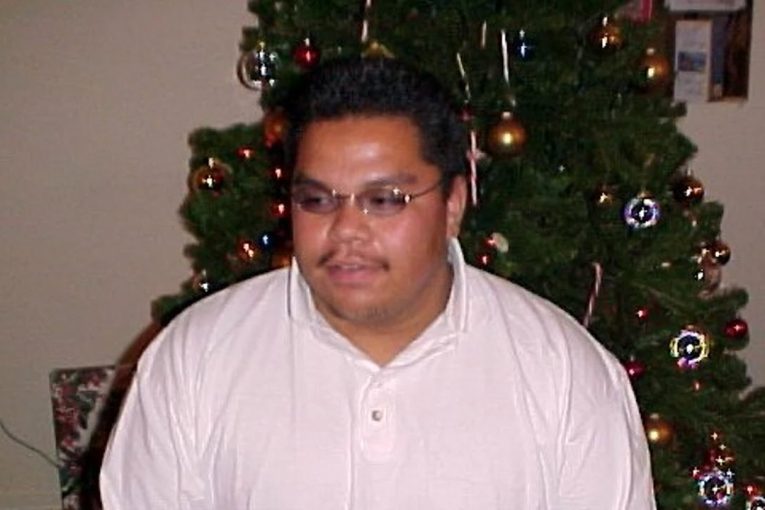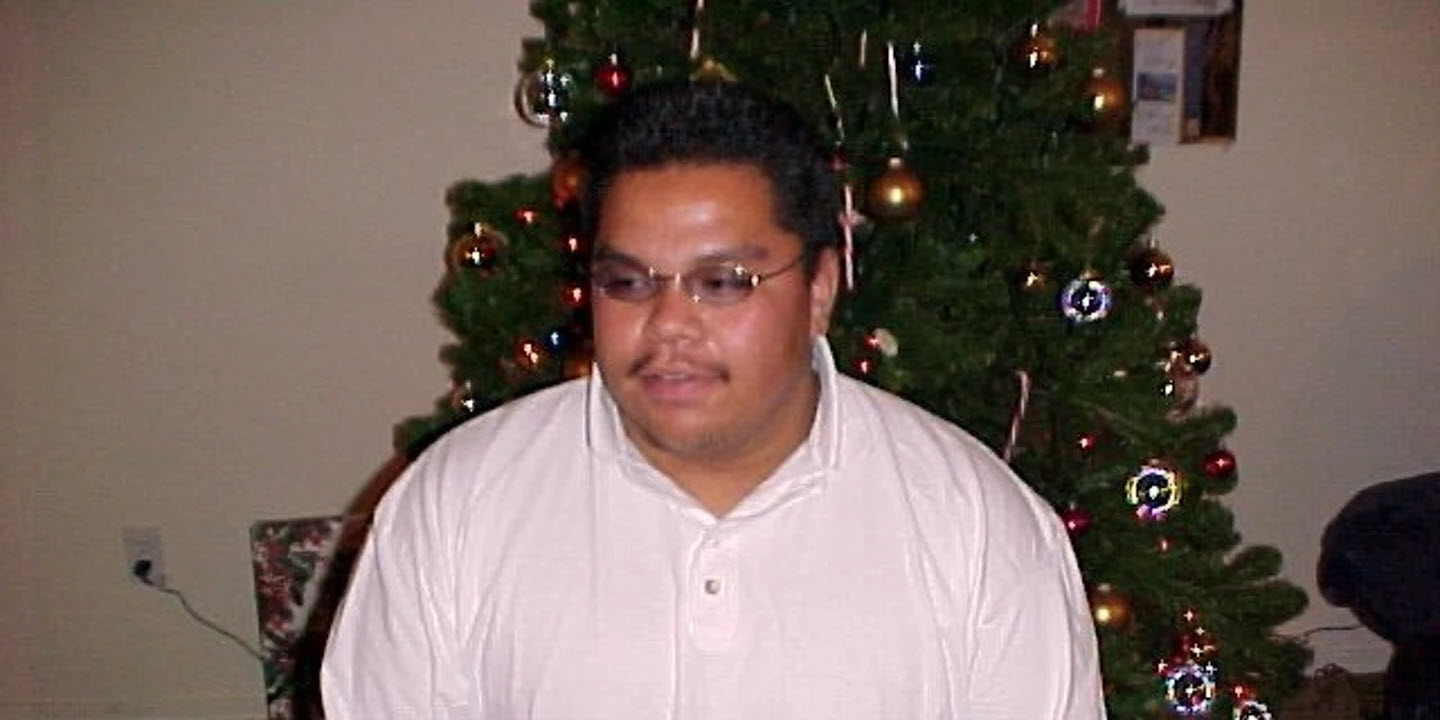

By Shellsea Lomeli
TERRE HAUTE, IN – The first federal execution of a Native American in modern history took place Wednesday—condemned by the Navajo Nation as an infringement upon tribal sovereignty, because the death penalty goes against the vocalized values and beliefs of the Navajo Nation.
Ironically, on the same day that Lozmond Mitchell was executed, Navajo Nation Vice President Myron Lizer spoke at the Republican National Convention, praising Pres. Trump who, he claimed, “has always made it a priority to repair the relationship with our federal family.”
Just last month, Lizer signed a letter of opposition to the execution sent to the Trump Administration.
Deputy Federal Public Defenders spoke out after the federal execution of Mitchell. He was convicted in 2001 and sentenced to death for the murders of a woman and her nine-year-old granddaughter. The crime occurred on Navajo lands in Arizona. Mitchell was initially arrested and held in a Navajo jail before the U.S. Dept of Justice established authority over the case.
While Navajo Nation officials opposed the death penalty because it counters Navajo values, and the assigned federal prosecutor recommended a non-capital trial, Attorney General John Ashcroft disagreed and ordered the death penalty to be sought.
Mitchell was originally scheduled to be executed in December of 2019 but it was postponed as his attorneys challenged the constitutionality of his death sentence.
Despite much push back, the Navajo man’s execution was carried out on Wednesday at the federal penitentiary in Terre Haute, Indiana. He was the only Native American on death row.
Jonathan Aminoff and Celeste Bacchi were Mitchell’s attorneys. They are both deputy federal public defenders based in Los Angeles.
Together, they issued a statement regarding the execution of their client.
“Today, the federal government added another chapter to its long history of injustices against Native American people,” Aminoff and Bacchi said.
“Over the steadfast objection of the Navajo Nation, and despite urgent pleas for clemency from Navajo leaders and many other Native American tribes, organizations, and citizens, the Trump Administration executed Lezmond Mitchell.”
It was reported that the victims’ family also expressed opposition toward seeking the death penalty in the case.
Mitchell was a Navajo man who committed a crime against other Navajo people on Navajo land. Because of these conditions, his attorneys argued that the execution went against tribal sovereignty which grants American Indians and Alaska Natives the right to govern themselves.
Aminoff and Bacchi called Mitchell’s execution a “gross insult to the sovereignty of the Navajo Nation.”
The tribe strongly opposed the death sentence and personally called on the President to adjust the Navajo man’s sentence to life without the possibility of release. The Trump Administration refused and Mitchell was put to death by lethal injection.
The jury Mitchell had faced was made up of 11 white people and a single Navajo. The lack of diversity raised concerns among the deputy federal public defenders.
“Mr. Mitchell’s execution came after the Supreme Court refused to allow him to interview his jurors about whether racial bias influenced their decision,” the attorneys stated. “We have little doubt that it did, because in their zealous pursuit of a death sentence for Mr. Mitchell, the federal prosecutors made arguments laced with anti-Indian stereotypes.”
If the juror interviews were permitted, Aminoff and Bacchi may have been able to utilize the case of Pena-Rodriguez v. Colorado, in which the U.S. Supreme Court ruled that statements by jurors that indicated their verdict was influenced by racial stereotypes or animus were admissible to challenge the constitutionality of a conviction.
“We hope that the future will bring greater respect for the sovereignty of Indian nations and for the traditions of their people,” Jonathan Aminoff and Celeste Bacchi concluded.
In addition to the attorneys’ statement, many individuals across the nation spoke out after Lezmond Mitchell’s execution.
“Our government—which spent centuries slaughtering Native Americans, still has no respect for Native life or tribal sovereignty,” said Rebecca Nagle, a Cherokee writer for publications like the Washington Post.
“This is a sad day…for the Navajo nation as a whole,” said President Johnathan Nez and Vice President Lizer of the Navajo Nation, adding, “Crimes committed on the Navajo Nation are for us to decide. Our judicial and public safety system considers restorative justice in court cases as based on our customs and traditions of hozho’ and k’e. Federal officials may not understand our family connections and our strength in keeping harmony.”
“Hozho’” is a word used by the Navajo People to describe the essence of their philosophy and “k’e” describes their kinship system.
His death was the fourth federal execution carried out by the Justice Department in 2020, after 17 years without one.
To sign up for our new newsletter – Everyday Injustice – https://tinyurl.com/yyultcf9

I am sad to hear this and see no justification nor gain in this death sentence vs. life-without-possibility of release — certainly no public safety gain, so what is the point? This appears to be an outright disrespect of Navajo values to no-ones gain.
Nowhere in this article does it describe Mitchell’s crimes. I think that should be part of the story:
https://cronkitenews.azpbs.org/2019/07/25/navajo-federal-execution-scheduled/
It doesn’t seem so according to this victim’s family, here’s a statement from the slain 9 year old girl’s father:
https://www.msn.com/en-us/news/crime/i-have-waited-19-years-to-get-justice-lezmond-mitchell-executed-inside-federal-prison-in-terre-haute/ar-BB18p3Jd
The father isn’t the only person in the family Keith.
A 2004 report apparently the family did oppose the death penalty.
“Her request to the federal prosecutor to have the murderer of her mother and her daughter serve life without parole was ignored and dishonored,” the 2004 committee report stated.
The Navajo Council said, they had not received any statement from the victims’ family that would indicate they have switched their position.
That said – I don’t believe that anyone is entitled to retributive justice, so the above is simply posted for the sake of accuracy.
Well, the facts of the matter is the victims are dead, as is one of “they” that were involved in the crime… those facts will not change.
Moving forward, why was the crime, committed on Navaho land, against Navaho people, and at least one of “they” was Navaho, not dealt with by the Navaho Nation? What about next time?
What about the rest of “they” involved in the crime? Were they caught, how were “they” dealt with? Was the executed man unique in the involvement of “they”?
Currently, given the Navaho Nation’s concerns, why did a Navaho (a token?) speak favorably about an administration, that did not commute the death sentence to LWOP? Contrary to the position of the Navaho Nation…
I don’t know but maybe because it was the slain 9 year old girl’s father?
“In 1994, the Federal Death Penalty Act allowed tribal governments to say if they wanted the capital punishment to be applied to their citizens. But there are exceptions.The federal government did not need the Navajo Nation’s permission to pursue the death penalty against Mitchell because one of his charges was “carjacking resulting in death.”
The crime is not a part of the Major Crimes Act, but is considered to have “nationwide applicability.” That means it can be charged as a federal crime no matter where it takes place across the country.”
https://www.indystar.com/story/news/crime/2020/08/26/lezmond-mitchell-navajo-nation-set-executed-at-terre-haute/3432935001/
I think this comment is totally over the top. The Navaho (a token?) as Bill questions lost his 9 year old daughter to the heinous crimes of Lozmond Mitchell so he has the right to feel and speak however he feels.